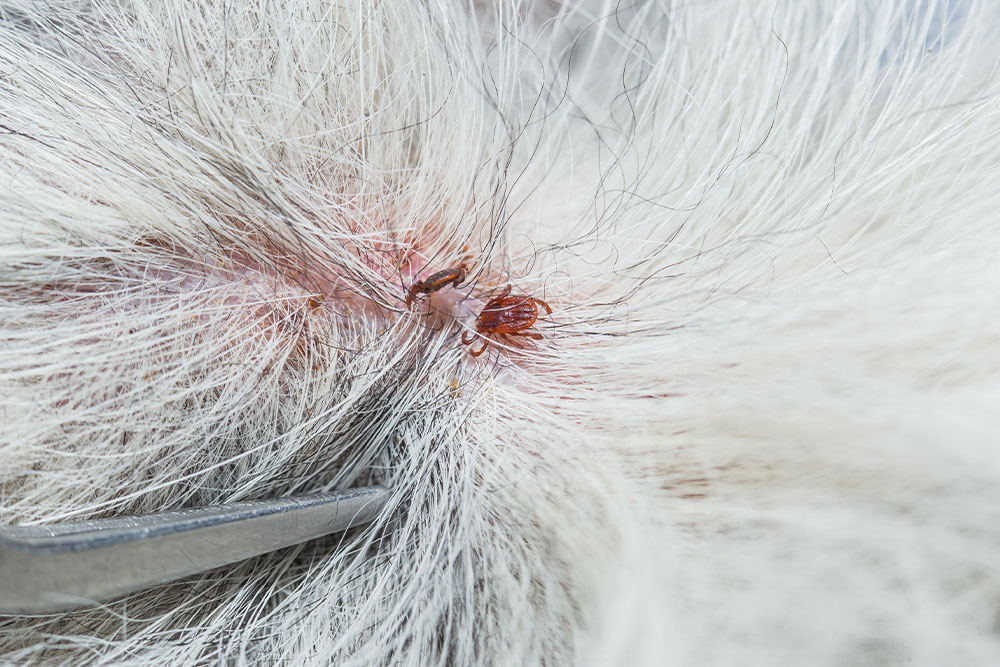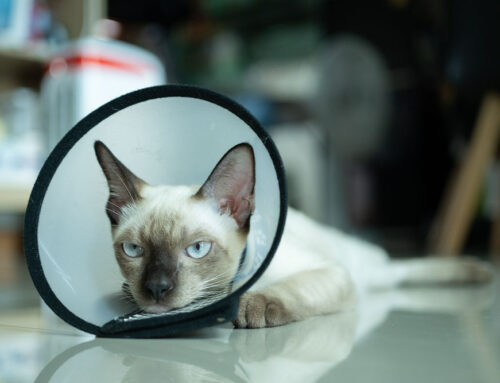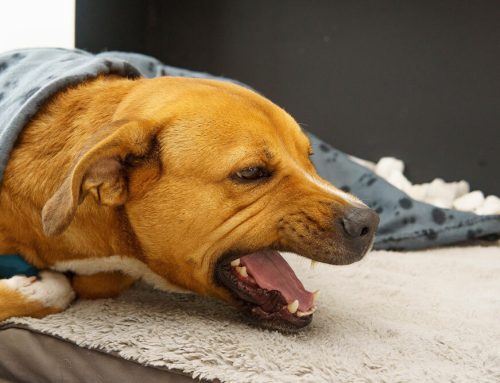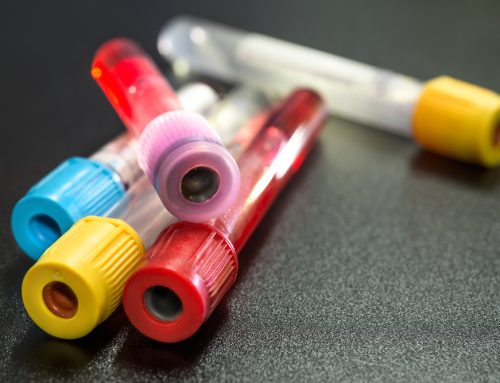Is your dog or cat constantly scratching, licking, or losing patches of fur? They may be suffering from more than just a mild skin irritation. At Animal Medical Hospital of Naples in Naples, Florida, we frequently see pets affected by Flea Allergy Dermatitis (FAD)—a condition caused not by the fleas themselves, but by an allergic reaction to flea saliva.
Even one bite can trigger intense itching, redness, and inflammation, making consistent flea prevention essential—not just during peak season, but year-round.
What Is Flea Allergy Dermatitis (FAD)?
Flea Allergy Dermatitis is a hypersensitivity reaction to proteins in flea saliva. It’s one of the most common skin conditions we treat, particularly in pets with underlying allergies or sensitive skin. Dogs and cats with FAD may suffer weeks of discomfort from a single bite, and symptoms often continue long after the fleas are gone.
To learn more about flea allergies in cats, visit Cornell Feline Health Center.
Recognizing the Signs of Flea Allergy Dermatitis
Symptoms typically appear on the lower back, tail base, abdomen, and inner thighs, and may include:
- Intense itching, scratching, biting, or licking
- Red, inflamed skin, often with bumps or scabs
- Hair loss, especially near the tail
- Hot spots or open sores
- Secondary skin infections
FAD is often mistaken for general flea irritation, but the allergic component makes symptoms much more severe. For a clinical breakdown, refer to Merck Veterinary Manual’s overview.
Diagnosing Flea Allergy Dermatitis
Veterinary diagnosis may include:
- Physical exam: Flea dirt, skin irritation, and lesion location can be diagnostic clues.
- Skin scrapings or cytology: Helps rule out mites, mange, or yeast infections.
- Allergy testing: Can confirm flea allergy or identify additional triggers.
- Response to treatment: Improvement after flea control often confirms the diagnosis.
Additional allergy tips can be found through Purdue Veterinary Hospital.
Treatment: Stopping the Itch and Preventing Future Outbreaks
Flea Prevention Is Non-Negotiable
The foundation of FAD treatment is aggressive, consistent flea control. All pets in the household must be treated, even if only one is symptomatic.
Recommended options include:
- Prescription topical treatments (e.g., Revolution, Bravecto)
- Oral flea medications (e.g., NexGard, Simparica)
- Long-acting flea collars like Seresto
Managing the Skin Reaction
For pets already experiencing inflammation or infection, we may recommend:
- Medicated shampoos to soothe and cleanse the skin
- Antihistamines or corticosteroids to reduce itching
- Antibiotics if secondary bacterial infections are present
- Fatty acid supplements to support long-term skin health
Preventing Flea Infestations at Home
Only 5% of fleas are found on your pet—the remaining 95% live in your home as eggs, larvae, and pupae. Breaking the lifecycle is critical.
Tips for Environmental Control
- Wash pet bedding and vacuum floors at least weekly
- Use a flea spray or fogger in carpets and furniture
- Treat all household pets—even indoor-only cats
The CDC offers helpful info on flea life cycles and control.
When to Call the Vet
Contact Animal Medical Hospital of Naples if your pet:
- Has persistent itching despite flea treatments
- Shows signs of infection, including scabs or open wounds
- Is experiencing hair loss, weight loss, or behavioral changes
- Is not responding to over-the-counter products
FAD is not only uncomfortable—it can escalate quickly. Veterinary care ensures proper diagnosis and effective treatment.
Schedule a visit with our team to get your pet the relief they need.
A Year-Round Commitment to Comfort and Care
In warm climates like Naples, Florida, fleas are a year-round threat. That means your pet’s protection should be, too.
- Start prevention before you see fleas
- Stick to a monthly routine for all pets
- Pair flea control with regular checkups and grooming
(Why grooming matters—ASPCA)
Flea Allergy Dermatitis is preventable—but only with the right approach. Year-round flea protection, consistent grooming, and prompt veterinary care are the keys to helping your pet live a more comfortable, itch-free life.
For personalized recommendations or treatment, contact Animal Medical Hospital of Naples today. We’re here to help you protect your pet from the inside out.








Leave A Comment